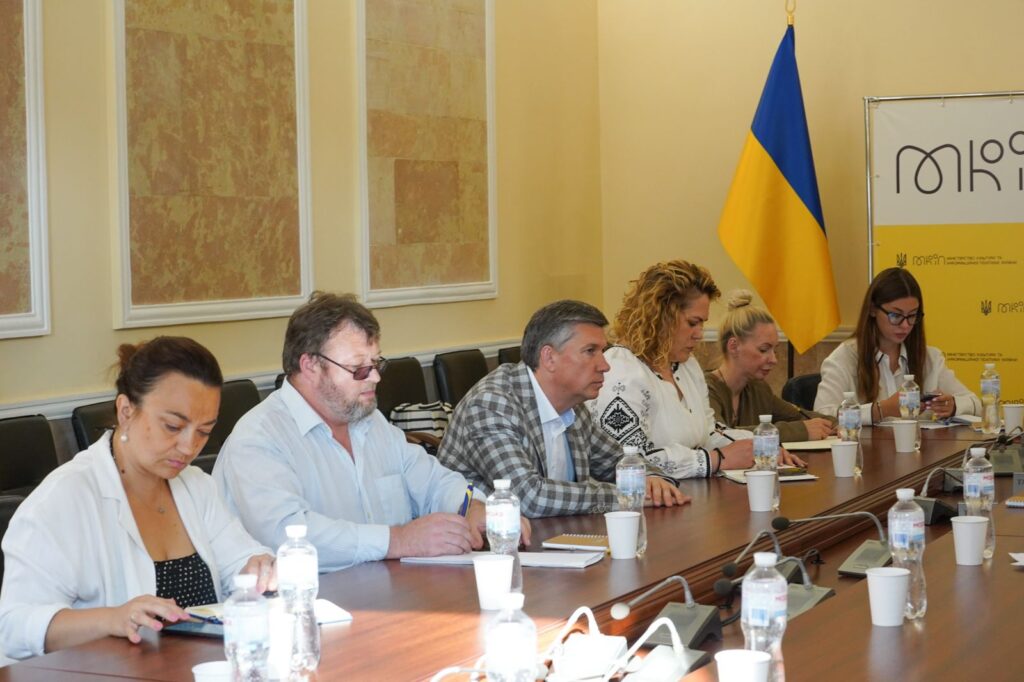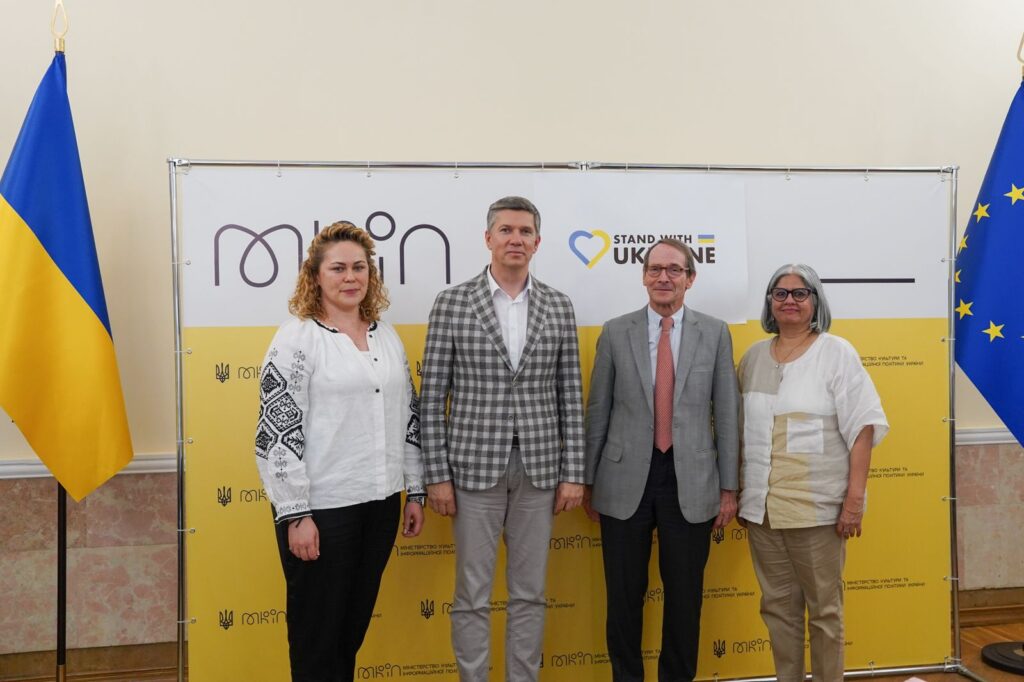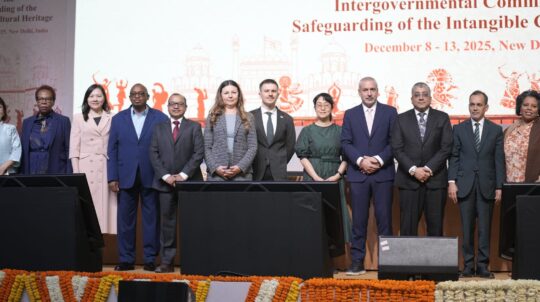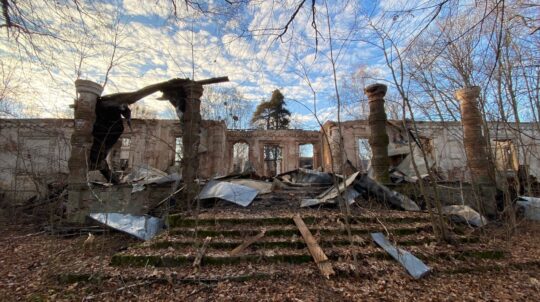On August 29, the Acting Minister of Culture and Information Policy of Ukraine, Rostyslav Karandieiev, met with a delegation from the UN Independent International Commission of Inquiry on Ukraine.

The parties discussed documenting the consequences of war crimes committed by the russian federation against Ukrainian cultural heritage, as well as violations of human rights and international humanitarian law by the terrorist state.
The Acting Minister of Culture and Information Policy of Ukraine, Rostyslav Karandieiev, emphasized the importance of a clear understanding within the global community of what constitutes good and evil in the current situation. He underscored that punishment for crimes is not only expressions of justice but also an effective tool to prevent the spread of such evil worldwide.
“It is especially important that world leaders, heads of their countries, stand with Ukraine. Therefore, this meeting is a significant step towards achieving this goal. Your work holds great significance for us, not only for the Ministry of Culture and Information Policy, but also for our country as a whole,” he stated.
Rostyslav Karandieiev noted that the issue of preserving cultural heritage deliberately destroyed by the enemy is crucial. Additionally, he outlined categories of losses in the cultural sphere: objects of immovable cultural heritage, museum artifacts, and, most importantly, human losses, which include not only deceased workers, but also those who, due to relocation, were forced to change professions.
Rostyslav Karandiev separately mentioned that the Ministry of Culture and Information Policy (the MCIP) has developed an algorithm for recording cultural heritage losses. Law enforcement officers use this algorithm to record the consequences of attacks, along with experts from local authorities.
“We set the task of preparing a robust restoration and recovery system. However, before initiating this process, it is necessary to consider the scale of the destruction. Therefore, experts continue to document the damages in the cultural sphere, and we will greatly appreciate our colleagues from the UN for giving legal status to this information,” stated Rostyslav Karandieiev.
Representatives of the delegation from the UN Independent International Commission of Inquiry on Ukraine noted that while collecting evidence of violations, they do not forget about the cultural aspect. This is because a country’s identity is manifested through its culture.
As a result of the meeting, the parties determined priority areas of cooperation, particularly focusing on the documentation and recording of destruction and losses of movable and immovable heritage in Ukraine. They also appointed individuals to coordinate further joint actions.
For reference, members of the UN Independent International Commission of Inquiry on Ukraine are undertaking their third visit to Ukraine from August 28 to September 4, 2023. As part of this crucial fact-finding mission, the Commissioners plan to visit several locations in Ukraine to investigate alleged human rights violations and abuses, as well as violations of international humanitarian law and to meet with victims and witnesses of the events.


